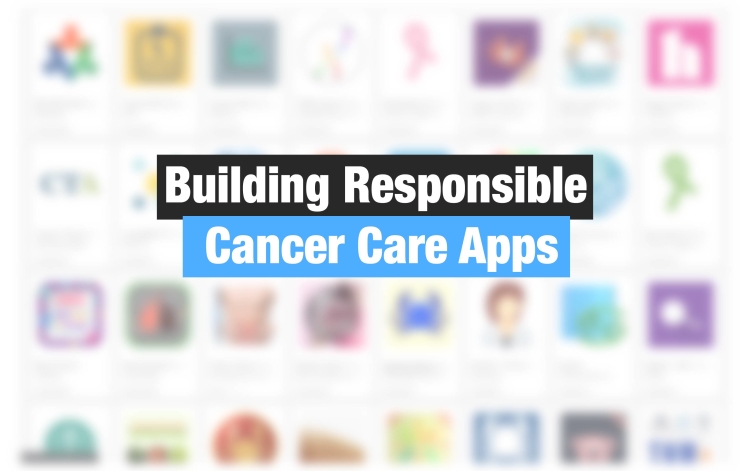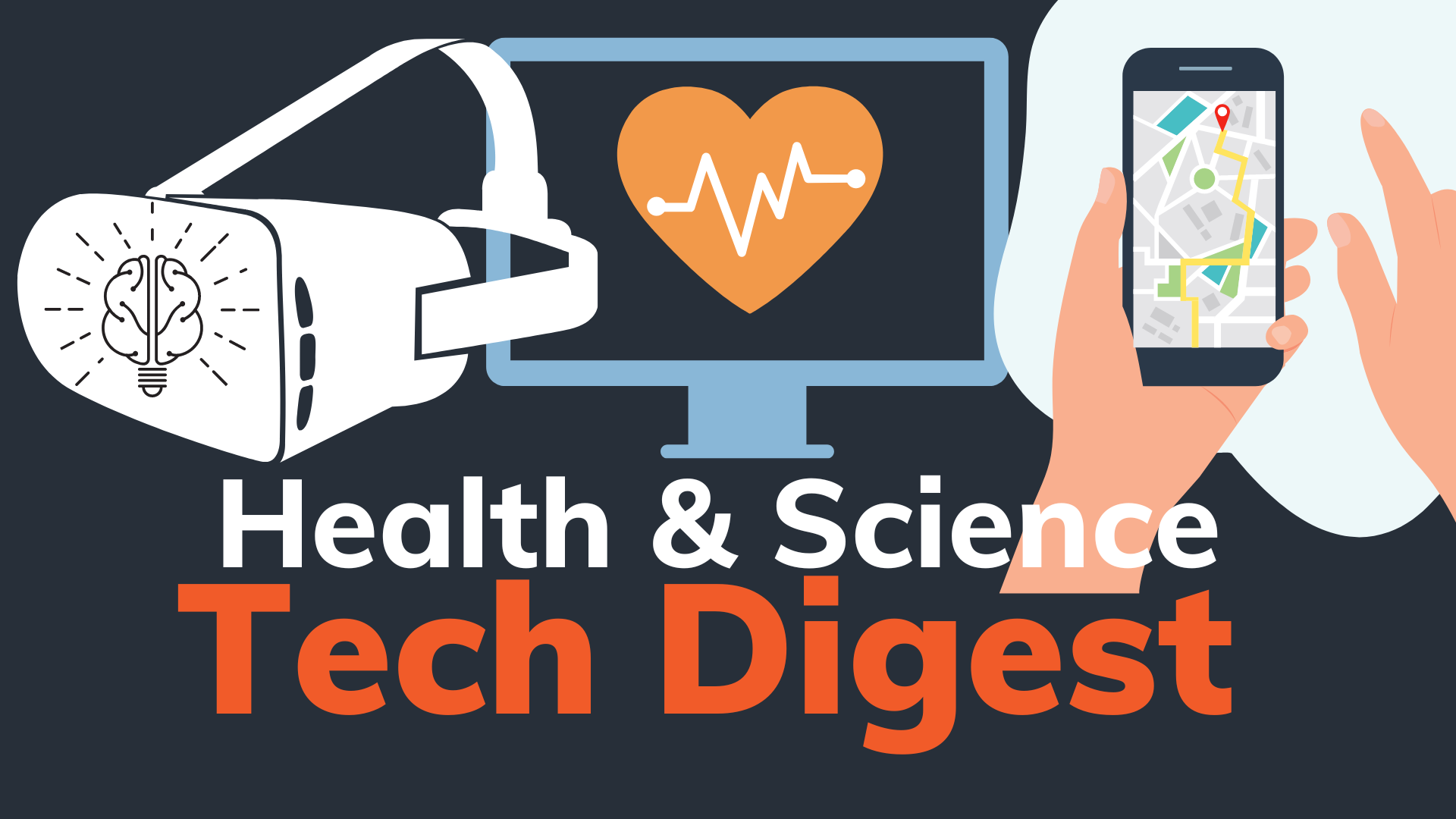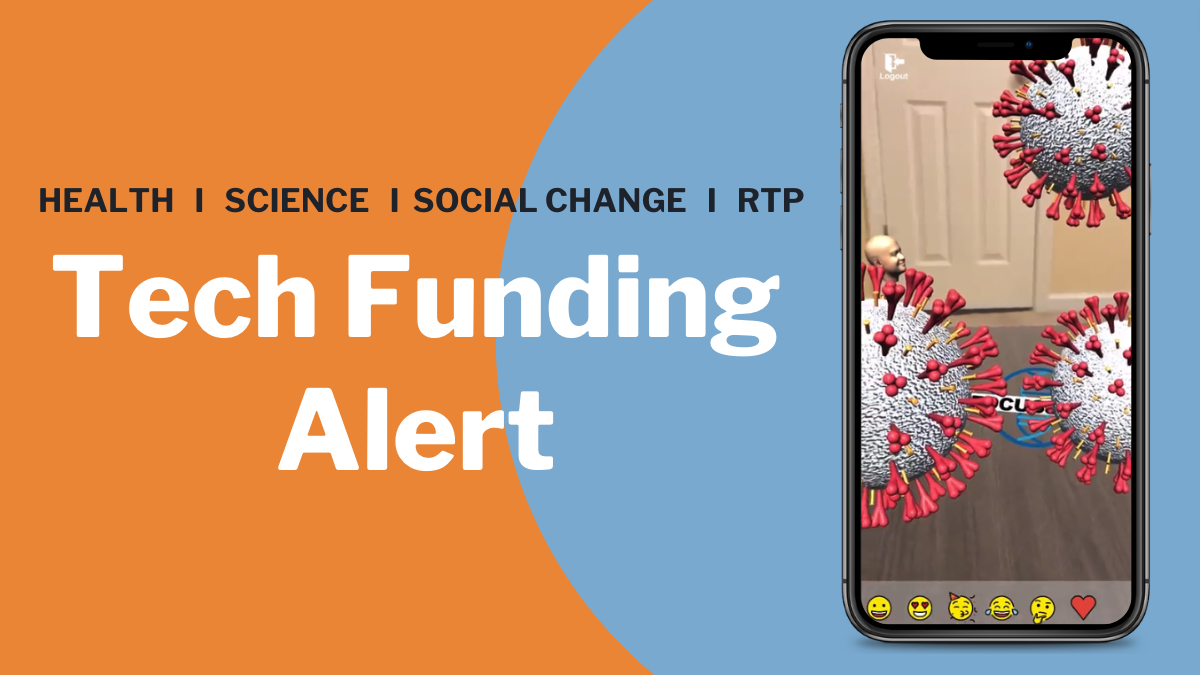There are currently hundreds of cancer-related mobile apps available for download in the Apple and Google app stores. While the sheer number of apps may be evidence of the growing interest and opportunity to use mHealth for cancer care, it also introduces some concerns regarding the credibility of apps available for public consumption.
Building Responsible Cancer Care Apps
Among the apps reviewed in this University of Aberdeen study, some were found to have unclear origins, or “seemed to make exaggerated claims,” or even sold products with “questionable efficacy.” Other studies of cancer-related apps found similar problems, including a lack of incremental testing, the absence of listed references or disclaimers, and little documentation of evidence or the involvement of medical professionals. Perhaps worse, the latter study found that 15.7% of the reviewed apps “had the potential to cause indirect harm” to consumers while 5.4% collected and stored confidential data without any stated data-protection measures.
Behavioral Science and Mobile App Development
In a 2019 journal article, our partners at the Karmanos Cancer Institute (KCI) and Wayne State University (WSU) noted the importance of behavioral science in the development of cancer-related apps. In cancer research, behavioral scientists craft evidence-based interventions that improve care and outcomes. These interventions are based on scientific theory and rigorous testing designed to better understand the experiences of cancer patients. As noted in the WSU article, cancer-related apps are more likely to result in desired behavior changes in patients when designed from a behavioral theory or model.
In our work with KCI and WSU, we built two apps that adopted a behavioral science approach. The DISCO app was modeled after paper-based question prompt lists (QPLs), which have been shown to promote active patient engagement and better communication in treatment discussions. As the WSU article notes, the logic of QPLs stems from communication and social psychological theories.
Karmanos Cancer Institute's DISCO app helps patients navigate the cost of cancer treatment
Similarly, the MyPatientPal app uses patient reported outcomes (PROs) to track treatment-related side effects. According to the Wayne State University article, the use of PROs is based on theories of self-management and self-efficacy that suggest that the daily reporting of side effects can increase a patient’s ability to self-manage care, adhere to medication, and communicate with providers about symptoms.
This WSU research also points to the importance of iterative testing and multidisciplinary teams to build innovative app solutions for cancer care. In the case of the MyPatientPal and DISCO apps, WSU had a vast network of researchers, providers, and patients to assist in research and testing. CrossComm was able to supplement KCI and WSU’s research knowledge with our own technical expertise to help translate the theory-based concepts into effective mobile app functions. Working iteratively with KCI allowed for testing, adjustments, and clinical trials to craft the best solution possible.
MyPatientPal helps cancer patients track symptoms and side effects related to their illness and treatment
Putting Patient Needs First
In September 2019, the FDA released a guidance document to clarify how it intends to regulate health-related apps. In it, the regulatory organization stated that it would focus on software functions intended “to be used as an accessory to a regulated medical device” or “to transform a mobile platform into a regulated medical device.” Apps focused on providing education, assisting in disease self-management, or providing supplemental coaching or care, however, would likely not be regulated.
Therefore, it is still relatively easy to get certain medical-related apps into an app store, while it remains difficult for patients and providers to assess how well some of these apps work and how (or if) data will be protected.
Companies that build cancer care apps without a theoretical foundation, adequate testing, or the involvement of a reputable, multi-disciplinary team risk contributing to the noise that exists in app stores today. Low quality and non-reputable apps that lack testing or documentation have the potential to harm patients and (according to the University of Aberdeen study) can even hurt the reputation of well-made and responsibly-constructed apps, simply due to their proximity in the app store.
Some of the many cancer-related apps in the Google Play store
The University of Aberdeen study advises patients to assess the credibility of apps in an app store by assessing if the app seeks to solve an existing problem they have, appears to be well-designed, lists credible organizational affiliations, and is straightforward about how it intends to use personal data.
To build more responsible cancer-related apps, companies can start by reverse-engineering these guidelines. They can seek to address cancer-related problems based on proven or tested techniques and enlist the help of a reputable, multidisciplinary team (healthcare providers, app developers, etc.) who can ensure the patient’s health and data are respected and prioritized.
If you’re curious to learn more about how CrossComm can work alongside your team to build patient-centric, cancer-related apps, we welcome your email at hello@crosscomm.com.
To learn more about how mobile apps can assist cancer care and research, check out this companion article we published!



